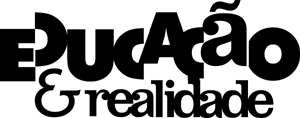Abstract:
By means of the reflecting abstraction, unlike the empirical abstraction, the subject builds cognitive abilities removing features of his coordination of actions. Piaget creates the pseudo-empirical abstraction as a form of the reflecting, not the empirical abstraction; by it, the subject withdraws from the objects the features of his coordination of actions, which he had previously placed on them. When removing the eight of the eighth part of an abacus row, the subject actually withdraws what he had put in that piece. If he takes the eight from different abacus parts, depending on where he began to count, it means that the eight is not in them; it is in the mind of the subject. In addition to characterizing it, it is shown in the text the epistemological, methodological and educational value of the pseudo-empirical abstraction.
Keywords:
Reflecting Abstraction; Pseudo-Empirical Abstraction; Epistemology; Methodology; Education

 Thumbnail
Thumbnail
 Thumbnail
Thumbnail
 Fonte: Becker (2012b, p. 35)
Fonte: Becker (2012b, p. 35)
 Fonte: Piaget (1995)
Fonte: Piaget (1995)